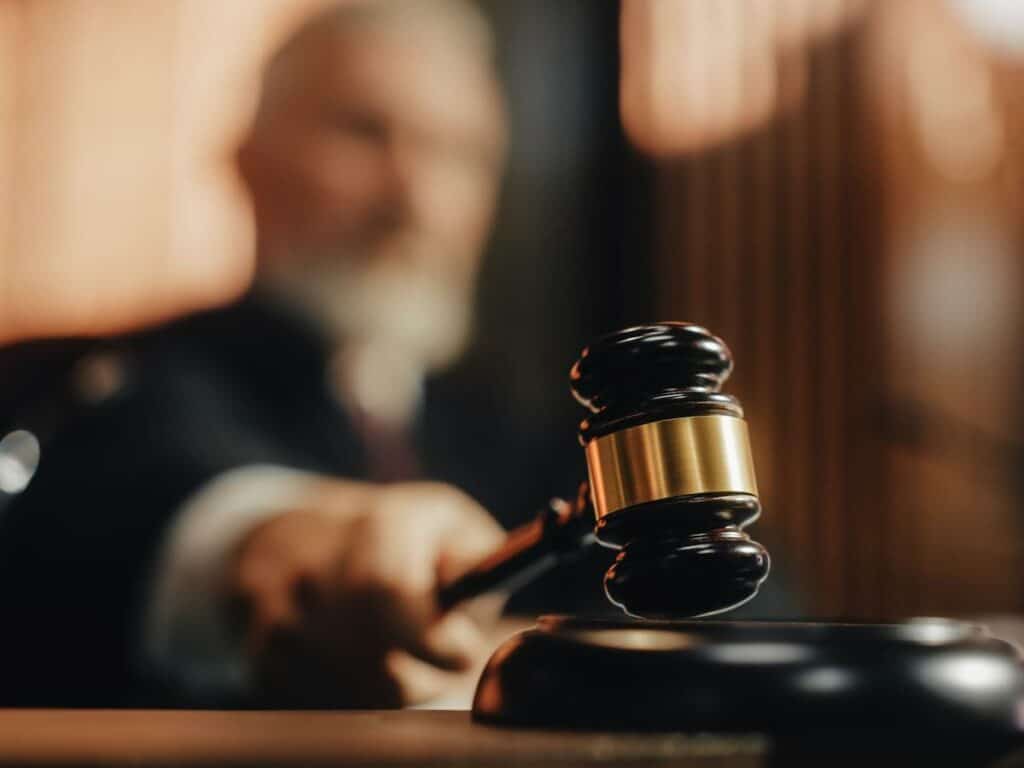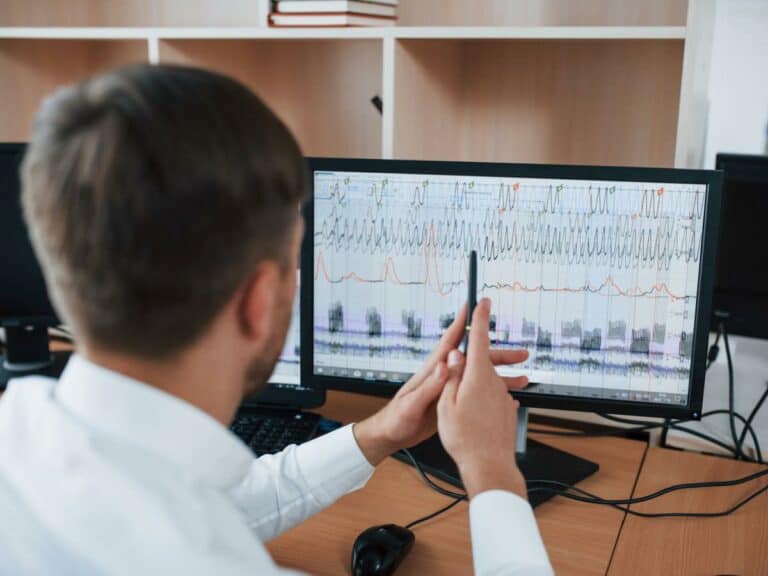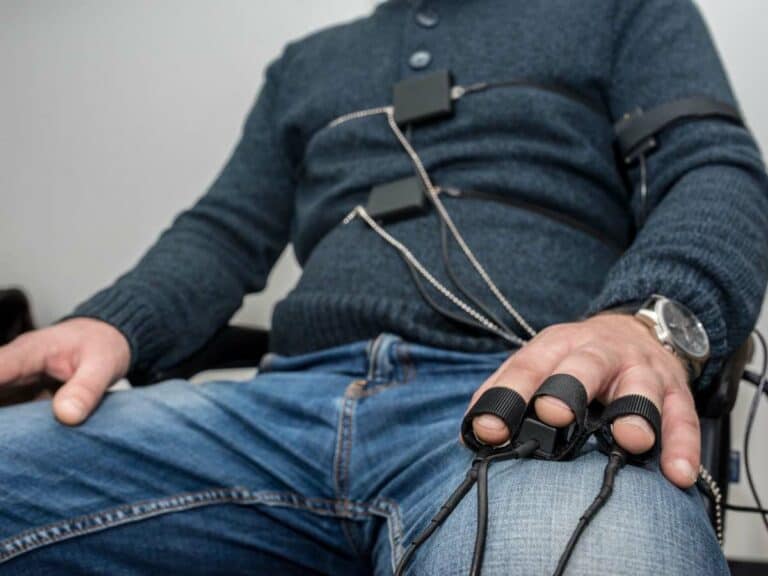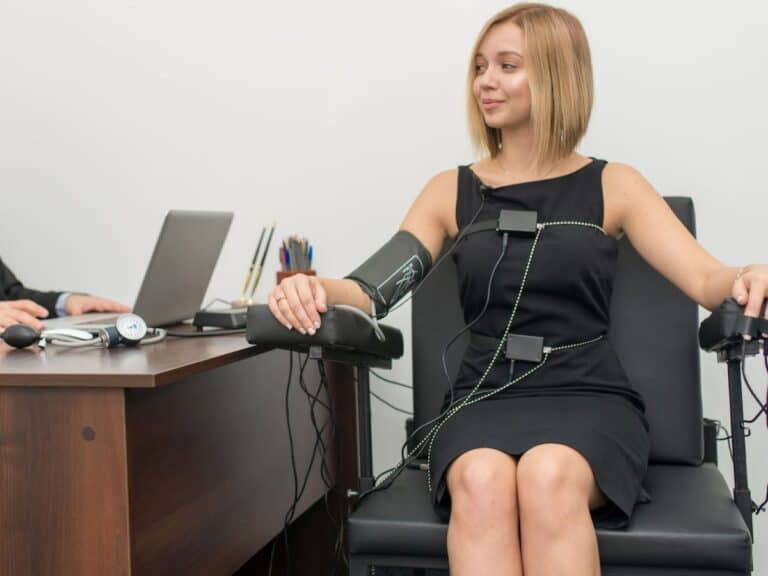Is a Polygraph Test Admissible In Court?
A trial judge determines whether a defendant is guilty or innocent. And when the judge comes up with a verdict, the court proceedings come to an end. Will the prosecuted taking a lie detector speed up the trial process?
Polygraphs are admissible in court in some states. Both defendants and prosecutors, however, must agree to their use. In other states, meanwhile, lie detector tests are not admissible in court. This is true even if both parties agree for results to be considered as pieces of evidence in court.
About to undergo a trial or simply curious about polygraph tests? Read on.
In this post, I will discuss some important matters on the admissibility or inadmissibility of polygraphs in trial proceedings.

When is a Polygraph Not Admissible in Court?
There are a handful of instances when a polygraph has no admissibility in court. One of them is when the state does not consider the exam’s validity. Another is when both parties do not agree to use it as evidence in court where a lie detector test is allowed. Also included is when the law prohibits a polygraph’s use.
A total of 23 states, as of this writing, consider the use of a lie detector test in court.
However, it doesn’t necessarily mean that a polygraph examination result can automatically be used as a piece of evidence during court trials. While permissible, as expected, there are restrictions and prohibitions.
In jurisdictions where a lie detector test is considered legal, for instance, its use in courts is permissible in some proceedings only when both parties agree to its admissibility. So, in other words, the suspect and prosecutor must agree to use the polygraph results. Otherwise, the trial judge won’t allow it.
Some of the states where a polygraph is oftentimes admissible in court include:
- Alabama
- Arizona
- Arkansas
- California
- Delaware
- Georgia
- Idaho
- Indiana
- Iowa
- Kansas
- Nevada
- New Jersey
- New Mexico
- North Dakota
- Ohio
- Utah
- Washington
- Wyoming
The majority of states that consider polygraph exams admissible in court not only use the test only when both parties give it a go but also usually do not use it in criminal cases.
In most instances, a polygraph is used in civil cases, such as when a person is denied a job.
And private individuals in the said states suing polygraph examiners or administrators may use the lie detector test result as a piece of evidence itself.
Suppose a person suffers harm because of a false positive. Then he or she can sue the one who gave the exam for asking inappropriate questions or interpreting the machine’s readings wrongly.
While there are states where a polygraph test result is admissible in court provided that both parties involved agree to its use, some states consider the results of polygraph examinations to be totally inadmissible. This is true even if the prosecutors and defendants both decide to use them.
Some of the states where the use of polygraph as evidence is not allowed are:
- Massachusetts
- New York
- Illinois
- Texas
- Pennsylvania
- Washington, DC (taxation without representation)
The reason why different states or jurisdictions have different views when it comes to the admissibility of a lie detector test in court is that everyone does not agree on just how reliable a polygraph examination is. Naturally, the reliability rate is higher for its proponents, while it’s considerably lower among skeptics or critics.
Factors that can impact the reliability of a polygraph exam result are simply many and varied.
A defect in the polygraph machine used, for instance, can easily lead to either a false positive (when someone who is telling the truth appears to be deceptive) or a false negative (when a deceptive person appears to be telling the truth).
In some instances, it’s not the instrument used that’s the problem but the person who administers the lie detector test. An inexperienced or non-licensed examiner may give the readings a wrong interpretation. It’s possible, too, for him or her to be completely biased, deliberately causing the exam to work for or against the examinee.
And then there’s also the fact that some people are likely to fail the test, such as those who are suffering from heart disease or anxiety or taking certain medications or simply uncomfortable taking a lie detector test.
Daubert Standard and What It Has to do With Courts
The Daubert standard of today stems from the Daubert v. Merrell Dow Pharmaceuticals Inc., 509 US 579 (1993) Supreme Court case. However, it’s also rooted in a couple of cases that came after it.
Birth defects from the use of Bendectin, a nausea and vomiting drug — this is what the case was all about.
But even before the Daubert standard, which, by the way, is also sometimes referred to as the Daubert test, came into being, there was what’s referred to as the Frye standard. And just like the Daubert standard, the Frye standard comes from an actual case: Frye v. United States, 293 F. 1013 (DC Cir. 1923).
In the said case, the defendant, who was charged with second-degree murder, sought to have testimony from a scientist who carried out a lie detector test used as evidence. And, as they say, the rest was history. For decades, the Frye standard had influence in so many state and federal courts.
And then the Daubert standard rose to fame and replaced it. However, it’s not completely obsolete — there are a number of jurisdictions that continue to use the Frye standard. On the other hand, the more than 25 states that use the Daubert standard have not uniformly applied it, with some having their own version of the standard.
Only 9 states, as of this writing, have adopted the Daubert standard in its entirety.
There is only one thing that the Frye standard is designed to answer. And that is whether or not the opinion of an expert is generally accepted by the relevant scientific community.
On the other hand, the Daubert standard comes with 5 factors of consideration:
- Whether the theory or technique in question can be and has been tested
- Whether it has been subjected to peer review and publication
- The known or potential rate of error of the technique or theory
- The existence and maintenance of standards controlling its operation
- Whether it has attracted widespread acceptance within a relevant scientific community
The Daubert standard comes into play when using a lie detector test result as a piece of evidence in jurisdictions where a polygraph is deemed admissible in court — a judge may consider its admissibility if it satisfies all the 5 factors of consideration of the Daubert standard.
Still, it’s important that both parties agree to the use of the polygraph examination.
Can You Take a Polygraph to Prove Your Innocence?
It’s possible for an individual to ask to undergo a lie detector test in order to prove his or her innocence. However, it is generally not recommended. There is a chance for an innocent person to appear to be deceitful on a polygraph, which can be used against him or her simply for submitting to the test.
You are 100% certain that you are not guilty. However, it seems like the world thinks otherwise.
Taking a polygraph exam to show that you can never be more innocent — this may be on your mind to get things done and over with. After all, once proven you are telling the truth, the accusations are likely to stop.
Alas, subjecting yourself to a lie detector test as a gesture that your hands are clean isn’t really recommended. While requesting to take a polygraph is something that you can do technically, there is always a possibility that it can blow up in your face, thus doing you more harm than good.
A polygraph test, just like any other test, can cause anxiety. And some people are simply bad test-takers!
Being one of them, there is a huge possibility for you to appear like you are being deceitful when you are being nothing but truthful, which is what’s referred to as a false positive polygraph result.
Giving the polygraph machine the same physiological readings as a guilty individual can make you also seem guilty even though you’re not. Sometimes it’s simply because you are anxious — who won’t be nervous when being asked crime questions? But sometimes it can also be due to failure to understand a question or overanalyzing it.
And then there’s also the fact that a false positive result could stem from having an inexperienced or shady polygraph examiner. Someone who is after making some quick cash, for instance, may deliberately prolong the length of time a test is held in order to wear down the examinee and elicit the physiologic responses of a guilty person.
A person who is completely guilty, on the other hand, can be entirely deceitful throughout the polygraph exam and still come out as truthful. So, in other words, a liar can pass a lie detector machine, which is what’s referred to in the world of polygraph examination as a false negative.
In a criminal investigation consisting of suspects where only 50% are actually guilty, almost 17% of those who failed the lie detector tests were in fact innocent.
Meanwhile, among all the guilty individuals, only about 98% failed.
Since there are different ways to find evidence that can do a much better job of proving your innocence, many of which cannot be contaminated, it’s a good idea to use taking a lie detector test as the last resort.
But still, chances are it will not be admissible in court unless both parties agree to its use.
Taking a Polygraph When Arrested
Whether arrested or considered a suspect, the police cannot force an individual to undergo a lie detector test. Even if told that a polygraph is required or mandatory, one may refuse to take the examination. It’s also not recommended for an arrested person to volunteer to undergo one to prove his or her innocence.
I’ll take a lie detector test to prove to you I’m not guilty — this sentence or something similar to it should not come out of your mouth in case you get arrested and you know they’re barking up the wrong tree.
Just like what’s discussed earlier, it’s a bad idea to offer to take a polygraph to show you are guilt-free.
Fortunately for people who know how risky volunteering for a lie detector test can be for the fact that a false positive result may surface, no one can force them to take a polygraph examination — not a potential employer, not a current employer and not the long arm of the law or crime investigators.
The Employee Polygraph Protection Act (EPPA) and various other state laws make it illegal to force a person to undergo a lie detector test. This is true whether the individual is arrested for questioning or is already a prime suspect.
There is no jurisdiction in the US that makes it mandatory for a person to agree to a polygraph test. What’s illegal, though, is mandating an individual to take one. But it’s not uncommon for some companies to make a lie detector test an integral part of the pre-employment screening process and use its result as a condition for employment.
Such is the SOP if you want to get a job in the security, law enforcement or intelligence industry or where you will be in charge of huge amounts of cash, sensitive materials or prescription or even illegal drugs.
As a matter of fact, it’s completely legal for a few private companies and all federal, state and local government agencies to subject applicants to undergo a polygraph test. Still, it’s important to note that you can decline, although you will be running the risk of not getting hired for avoiding an important employment-related procedure.
But just in case you get arrested and agree to take a polygraph exam after being asked to take it or volunteering to get one, the fact remains that the result cannot be used as a piece of evidence against you in court. Well, unless both parties agree to its admissibility in a jurisdiction where a polygraph test is considered admissible as evidence.
And even if the police cannot use the lie detector test’s result against you, they may still take advantage of it to build a criminal case against you, which may or may not have an impact on your trial.
Do You Need a Lawyer for Help With Polygraph-Related Matters?
An experienced criminal defense attorney can help a defendant with matters related to polygraph testing, such as whether or not it should be taken, if the individual is working for a company that the EPPA covers, and what the lie detector test results, if taken, could mean for his or her case.
By now, you may already have an idea of just how complicated the use of a lie detector test in court as a piece of evidence given the laws and issues surrounding it.
Each state has a different view on the admissibility of a polygraph examination. And each jurisdiction has a different procedural requirement as well as interpretation of the result. It’s also possible for each one of them to have various clauses in their regulations that may not apply in another state or jurisdiction.
Without sufficient knowledge or understanding, you might end up taking the wrong polygraph-related step.
It’s true that a polygraph involves a pre-test phase where the examiner will talk about things like the procedure and the kinds of questions to answer. Any of your medical conditions or medicines taken will be discussed, too.
However, it’s not unlikely for none of the implications of the examination beyond the lie detector test itself to be discussed.
Due to this, consulting a defense attorney may be a good idea if you fear that you will be asked or required to undergo a polygraph test or are thinking about volunteering to take one in order to prove your innocence.
You have a number of specific rights, too, as a polygraph examinee. Some of them are getting a written notice at least 48 hours in advance of the testing and having the right to agree or disagree to a lie detector test.
Your lawyer can help you determine your various rights and ensure that the other party is complying with the law.
Just Before You Take a Polygraph to Be Used in Court
It’s not all the time that a lie detector test can be used as a piece of evidence in court. Whether or not it’s admissible will depend on the state as well as some circumstances.
Above, we talked about some of the most important things you need to know about undergoing a polygraph test when being accused of something. By knowing which steps to take, you can steer clear of unnecessary stress and expenses as well as save yourself from looking guilty when you are completely innocent.
Read Next: How Does a Polygraph Work






